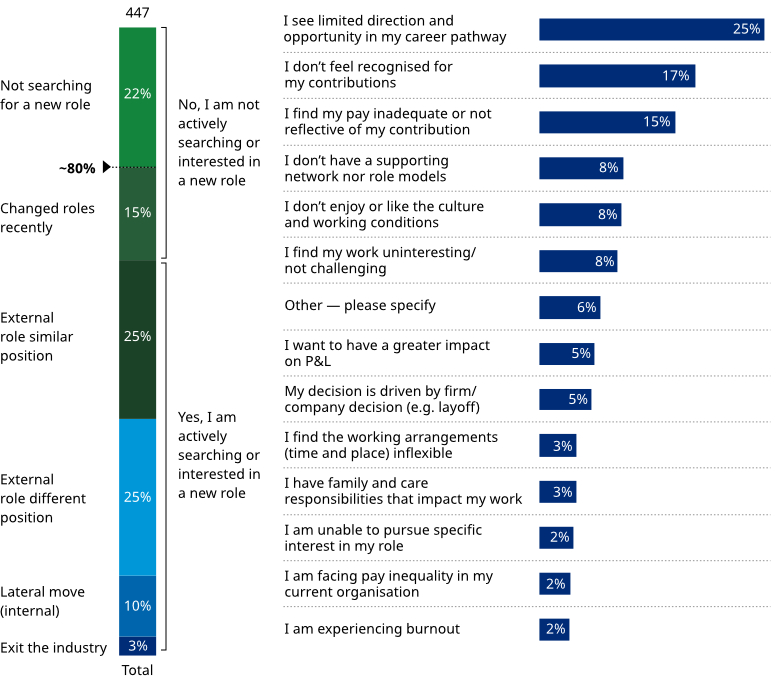Why Women Are Leaving Tech – And What UK Tech Employers Must Do Next
The UK’s tech sector is at a tipping point.
According to the recent 2025 Lovelace Report, between 40,000 and 60,000 women exited tech roles in the last year — a loss that’s costing the sector an estimated £2–£3.5 billion annually.
As a recruitment agency specialising in technology talent, we’ve seen first-hand how this growing gender gap is affecting teams, innovation, and long-term business growth across the UK.
But this isn’t just about numbers — it’s about equity, culture, and leadership.
In this blog, we cover some key insights from the Lovelace Report, why this should matter to UK tech employers, the importance of equity in the workplace and what employers can do to support women to progress in their tech roles.
What the Lovelace Report Tells Us
The report reveals that women aren't leaving tech because of caregiving responsibilities or a lack of interest in the field. Instead, they’re stepping away due to deep-rooted structural issues, such as:
- Lack of advancement opportunity
- Lack of recognition
- Longer waits for promotion (typically 3–4 years for women, versus the 2-year industry norm)
- Lack of sponsorship and visibility in mid-senior roles
- More than 50% earned below-average pay for their level
- Opaque career pathways and advancement opportunities
- Nearly 80% of women surveyed have either left or are considering leaving the industry
And this trend isn’t new. In fact, research from the Tech Talent Charter (2023), DCMS (2022), and even the Harvard Business Review (2008) has all echoed a similar story: women enter the digital workforce — but don’t stay.
In the Lovelace survey of more than 500 mid-to senior-level women in tech, lack of advancement opportunity was cited as the primary driver for leaving (25%)
Why This Should Matter to Tech Employers in the UK
The data makes one thing clear: tech doesn’t have a pipeline problem — it has a retention problem.
Here’s what’s at stake if we don’t act:
- Loss of diverse perspectives, innovation, and market alignment
- Higher hiring and retraining costs
- Decreased ability to fill mission-critical roles in areas like AI, data analytics, and cybersecurity
- A failure to meet the growing expectations around diversity and ESG accountability
The Critical Role of Equity (Not Just Equality)
To solve this, we need more than good intentions — we need equity.
While equality focuses on giving everyone the same tools, equity is about recognising that not everyone starts from the same place. And without addressing those structural disadvantages, we’ll keep seeing the same attrition patterns year after year.
At Eligo, we believe in building truly inclusive tech workplaces — not just diverse ones. That’s why we’ve been advocating for equity-first hiring and progression strategies.
👉 Read more about why equity matters more than equality in the workplace.
What Can UK Tech Employers Do?
The Lovelace Report doesn’t just diagnose the problem — it also offers clear actions:
- Actively sponsor mid-level women and build leadership pipelines
- Make senior female talent visible across teams and external branding
- Define and communicate clear career progression routes
- Rebuild organisational systems with equity at the core
Lovelace report findings showing ways in which employers can support women in tech roles
Our Role in Driving Change
At Eligo Technology, we’re not just here to fill roles — we’re here to help tech employers across the UK build workplaces where people thrive.
That means working with our clients to:
- Understand and reshape internal hiring structures
- Attract and retain more diverse, future-ready tech talent
- Develop equity-based strategies that align with long-term business success
If you're serious about retaining women in tech and rethinking your culture from the inside out — we’d love to help.
Let’s create a future where women aren’t just entering the tech sector — they’re leading it.


